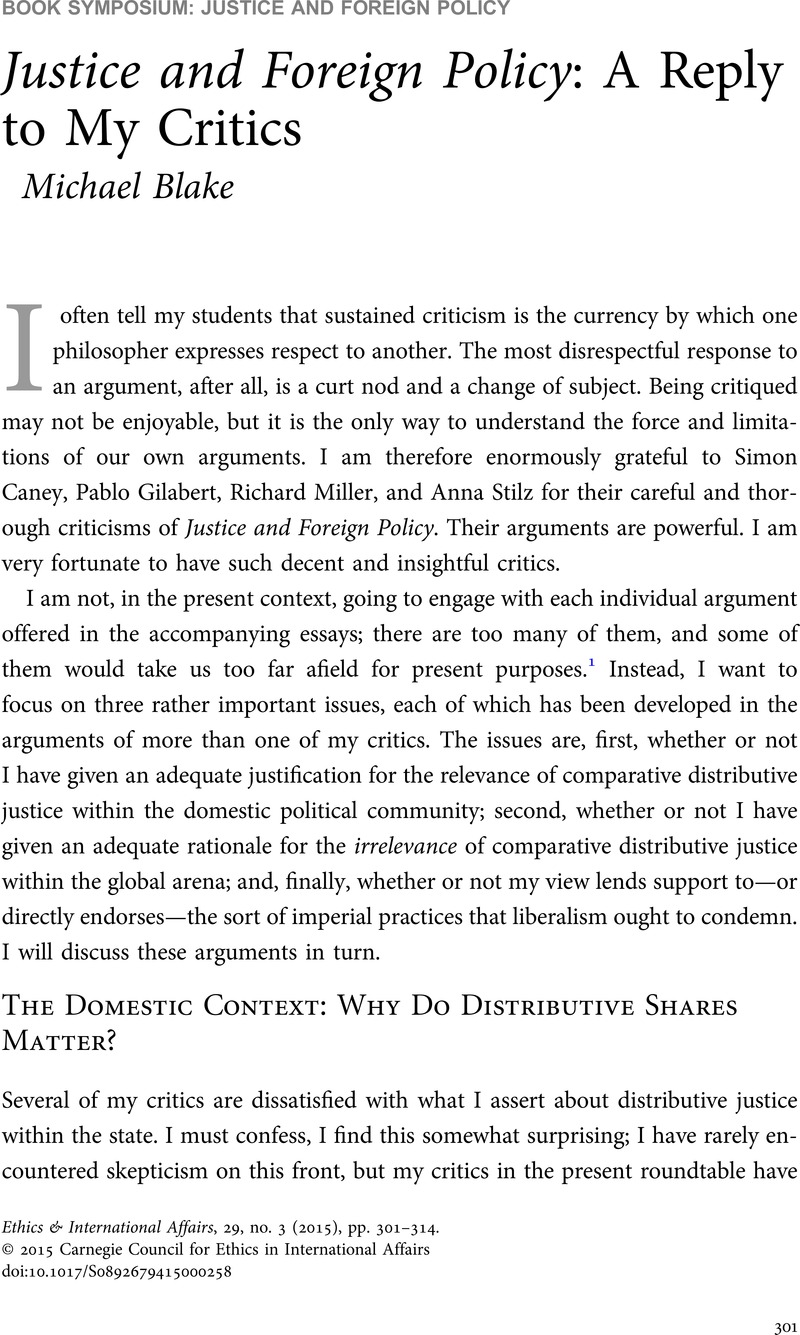No CrossRef data available.
Published online by Cambridge University Press: 08 September 2015

1 I would have liked, if there were space available, to address Simon Caney's argument that my analysis of global justice is incomplete, since it does not deal with territorial rights, historical wrongdoing, and obligations to future generations. I think Caney is quite right to note this, but wrong to take this as a criticism of my argument as given; I do not pretend that what I say in this book constitutes the entirety of the normative landscape, and am quite happy to think that a full analysis of that landscape would have to engage with these issues. I believe what I say here is compatible with many of these issues—I hope, in particular, that a notion of natural resources that focuses on sovereignty, rather than property, might be derived from what I say in this book—but I do not have the space to demonstrate this here.
2 See, for instance, the argument of Tilly, Charles, “Inequality, Democratization, and De-Democratization,” Sociological Theory 21, no. 1 (2003), pp. 37–43 CrossRefGoogle Scholar.
3 On this, see Herbert Gintis and Samuel Bowles, Democracy and Capitalism (New York: Basic Books, 1986).
4 It is worth noting in this context that Miller chides me for simply assuming the democratic status of the United States and other Western powers. He is right to raise the question; on my view of democratic self-government, the United States—like all countries—may fall far short of the ideal for a democratic society. I do not, however, conclude that the United States is precluded from using its foreign policy to work for democratization abroad, even if it imperfectly embodies that ideal at home.
5 The idea that minimal democratic rule is associated with growth is found in, among others, the work of William Easterly. See Easterly, The Elusive Quest for Growth (Cambridge, Mass.: MIT Press, 2002).
6 I develop this argument against Caney more fully in “Coercion and Egalitarian Justice,” Monist 94, no. 4 (2011), pp. 550–71Google Scholar.
7 See Philip Gourevitch, “Unreality Check: From Kim to Kim in North Korea,” New Yorker, December 19, 2011.
8 See Sharif, A. et al. , “Organ Procurement from Executed Prisoners in China,” American Journal of Transplantation 14, no. 10 (2014), pp. 2246–252CrossRefGoogle Scholar.